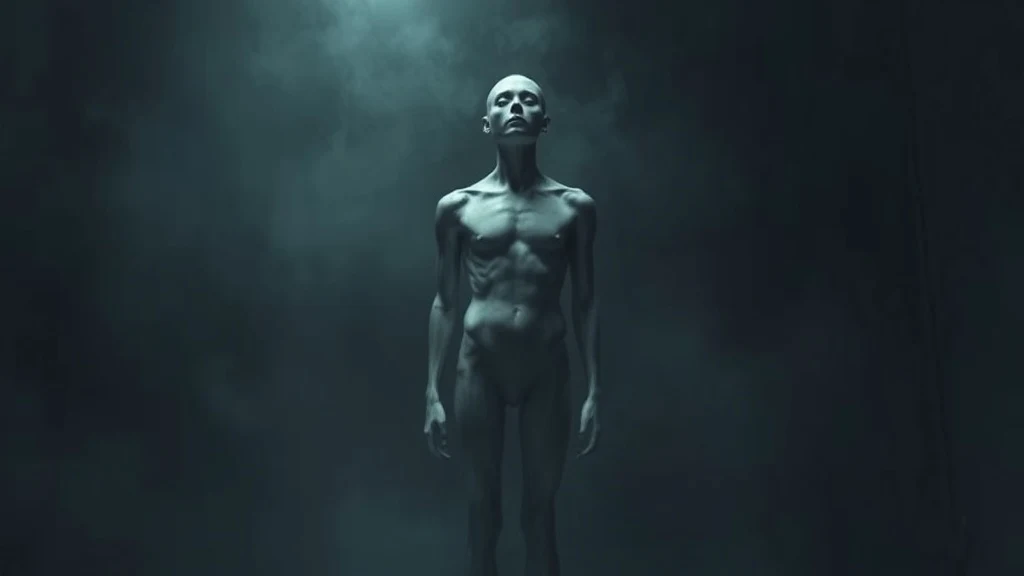5 Types of Individuals Prone to Dreams of Headless People
Want a Personalized Dream Interpretation?
Curious about how people like you interpret this dream symbol? Explore personalized interpretations tailored to your demographic. Get personalized insights for free!
Get Free Interpretation Now →Table of Contents
1. Individuals Experiencing Anxiety or Stress
Headlessness in dreams often reflects an overwhelming sense of anxiety or stress. When the dreamer feels powerless or unable to cope with their current circumstances, they may project this feeling onto a headless figure in their dreams. The absence of the head symbolizes the loss of control and rational thought, leaving the dreamer feeling vulnerable and exposed. It's as if they are stumbling through life without a clear sense of direction or purpose.
Dreams featuring headless people can also indicate feelings of emotional detachment or numbness. When a person experiences extreme anxiety or stress, they may retreat into themselves, shutting down their emotions to avoid being overwhelmed. In dreams, this can manifest as a headless figure, representing the dreamer's desire to escape the pain and anxiety of their waking life.
Additionally, dreams about headless people may symbolize a fear of losing one's identity or individuality. In times of high stress, individuals may feel their sense of self slipping away, as if they are losing control over who they are. The headless figure in the dream serves as a haunting reminder of this vulnerability, leaving the dreamer questioning their own existence and purpose.
2. People with a History of Trauma or Abuse
Headless People for People with Trauma or Abuse History
In the realm of dream symbolism, headless people carry a profound significance for individuals who have experienced trauma or abuse. The absence of a head in a dream mirrors the psychological disconnect and emotional numbness that often arise from these traumatic experiences.
The head represents our cognitive functions, sense of self, and ability to make rational decisions. When a person's head is missing in a dream, it suggests a fragmentation of the self, a loss of control, and a profound sense of vulnerability.
For those with a history of trauma or abuse, dreams of headless people can symbolize:
-
Dissociation: Headless figures can represent the dissociative state experienced during traumatic events, where a part of the mind detaches from the body to protect itself from unbearable pain.
-
Self-Blame: The absence of a head can symbolize self-blame and feelings of worthlessness, as if the person feels they have no right to exist or think for themselves.
-
Powerlessness: The inability to see or control the headless figure can represent feelings of powerlessness and helplessness, reflecting the control exerted by the abuser.
-
Fear of Identity Loss: Dreams of headless people can highlight fears of losing one's sense of self or becoming unrecognizable due to the ongoing trauma.
Furthermore, the presence of multiple headless people in a dream can indicate a sense of being overwhelmed by the weight of past experiences or the feeling of being surrounded by others who also lack autonomy or agency.
3. Those Struggling with Identity or Self-Image
A headless person in the dreams of someone wrestling with identity or self-image can be a manifestation of their fragmented or undefined sense of self. They may feel lost and directionless, lacking a clear understanding of who they are or what they want in life. The dream could be a reflection of their struggle to find their place in the world and establish a cohesive sense of identity.
Alternatively, the headless person can symbolize the dreamer's insecurities and negative self-perceptions. They may feel inadequate or unworthy, believing that they are missing something essential that others possess. The dream could be a wake-up call for them to confront their self-limiting beliefs and work towards a more positive and fulfilling self-image.
By exploring the symbolism of the headless person in their dreams, individuals struggling with identity or self-image can gain valuable insights into their subconscious and take steps towards healing and personal growth. The dream serves as an opportunity for them to reflect on their values, beliefs, and aspirations, and to cultivate a stronger and more authentic sense of self.
4. Individuals Feeling Powerless or Insecure
Headless People: A Symbol of Powerlessness and Insecurity
For those who feel powerless or insecure, dreams of headless people can be a particularly poignant reflection of their inner state. The absence of a head, the seat of our thoughts and emotions, symbolizes a profound sense of disconnection and vulnerability.
These dreams often evoke feelings of confusion and helplessness. The person may feel like they are wandering aimlessly, unable to make sense of their surroundings. They may struggle to communicate their thoughts and emotions, feeling like others do not understand them.
The headless person in a dream can also represent a part of the self that has been repressed or denied. This could be a part that holds important qualities or abilities that the person fears expressing. By facing this headless aspect of themselves, the dreamer can begin to reclaim their power and sense of wholeness.
5. People Dealing with Loss or Grief
Headless people in dreams for those coping with loss or grief often symbolize the absence or detachment they feel in their lives. The headless figure represents the loss of a familiar face, a connection, or a sense of completeness. The dream may evoke feelings of emptiness, confusion, and a longing for what's missing. It can also suggest that the dreamer is struggling to fully process or understand their loss, as they may feel disconnected from their own emotions or overwhelmed by the absence of a loved one.

Back to interpretation of headless people

